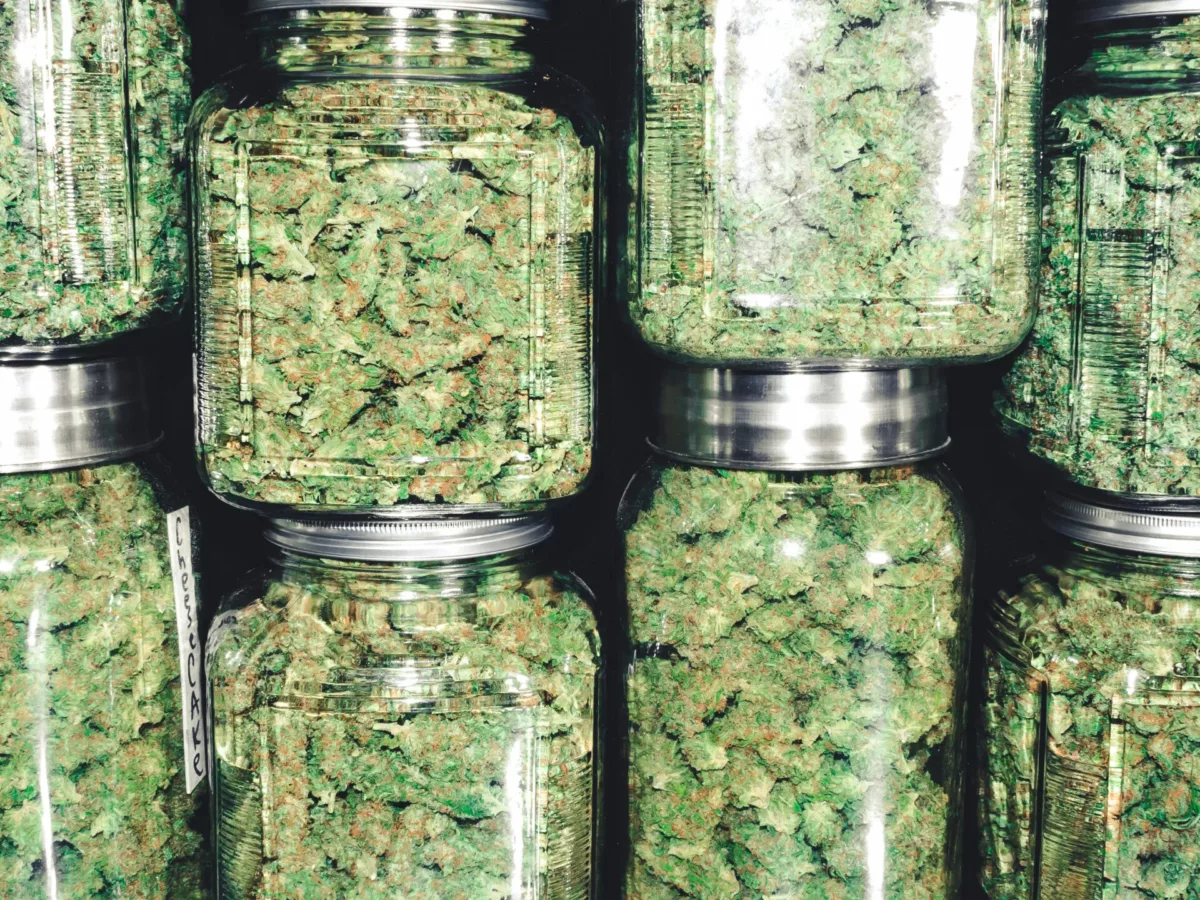A progressive Maryland state senator plans to file legislation next week to fully legalize recreational cannabis, leading with a framework geared toward social equity and criminal justice reform.
Sen. Jill Carter (D-Baltimore), who is drafting the bill in partnership with the ACLU of Maryland, wants to allow households to grow their own cannabis, direct more than half of tax revenue from recreational sales to communities harmed by the war on drugs, vacate previous weed-related convictions, along with other steps that put equity at the fore of the state’s transition to adult-use legalization.
“The equity is the primary motivation,” Carter told The Outlaw Report in an interview. “Marijuana legalization in and of itself is secondary to the good we can do with the equity proposals in the bill.”
A civil rights attorney who served 14 years in the House of Delegates and was elected to the Maryland Senate in 2018, Carter said her proposal can serve as “a companion” to a two-page referendum proposal from colleagues in the House. That bill, pre-filed by Del. Luke Clippinger (D-Baltimore) in December on behalf of House Speaker Adrienne Jones, seeks to put the question of legalization on the state’s ballot for the upcoming November general election. Maryland lawmakers could otherwise defer on creating an adult-use industry framework until 2023.
Carter said she’d rather avoid “unnecessary delay,” echoing concerns by advocates that a referendum could slow down the legalization process. She plans to file her bill during the first week of the legislative session, which begins Jan. 12.
“I think it’s stupid and foolish to pass a referendum without companion legislation that lays out the details,” she said, adding, “It just makes more sense to me, it’s more fair to the people to have a proposal where you can say, this is what you’re voting on.”
The proposal would legalize possession of up to four ounces of cannabis flower for Marylanders age 21 and up. It also calls for sending at least 60% of tax revenue to communities most negatively affected by cannabis’ criminalization, including areas where people of color have been disproportionately arrested for possession. Other details — like how many plants are permitted per individual or household and which geographic areas would receive a share of tax revenue — are still being finalized, Carter said.
Yanet Amanuel, who was recently appointed as the ACLU of Maryland’s interim public policy director, helped Carter craft the legislation with Leaders of a Beautiful Struggle, a Baltimore-based grassroots advocacy group that champions policies benefiting Black communities.
“We’re really trying to model this as a reparations model,” said Amanuel. “So that means that the communities that have been harmed have a role in deciding how that money is spent.”
Carter and the influential civil rights group have been in talks about addressing cannabis-related criminal justice issues for several years. Their forthcoming bill also includes provisions to ensure pot use can’t be used to deny someone housing, and to prohibit police from using the odor of marijuana without other legitimate cause for suspicion (effectively codifying a recent landmark court decision).
“I think Senator Carter has been a champion on this issue for a long time, and that this bill will be centering both racial justice and what the community says it needs,” Amanuel said. “And so I think this will be the bill that is favored definitely by the people, and hopefully the rest of the legislators.”
Despite research showing nearly equal pot use rates across racial and ethnic lines, past investigations have found law enforcement in Baltimore City and across Maryland disproportionately arrest Black users compared to whites. (Baltimore prosecutors have since stopped charging residents with low-level crimes like possession.)
Maryland has also drawn heavy criticism over the lack of diversity in its medical cannabis industry, which launched in December 2017 and, as of last month, has surpassed $600 million in annual sales. Minority investors were infamously shut out from the medical market’s early stages in 2016 after Maryland’s blind application process for growing and processing licenses led to just one out of 30 of them going to a Black business owner. In 2020, several years after sales began, a Capital News Service investigation found only 10% of cannabis industry investors in Maryland were people of color.
After its licensing debacle and resulting lawsuits, the state paid for a 2018 disparity study of its medical market that found cause to consider race as a weighted factor in licensing because minorities are starting off at a disadvantage. The General Assembly has since passed legislation to create additional licenses set aside for minority-owned companies.
Carter said her bill will include language calling for a similar disparity study of the recreational cannabis market, but “it’s kind of a matter of common sense. The data is already there regarding the communities that have been devastated by the fake war on drugs, the over-incarceration of Black people.”
Carter expects “some resistance” from General Assembly colleagues about the home cultivation provisions, particularly given concerns about how to regulate privately grown cannabis. However, she said the bill would aim to prevent home-grown cannabis from being sold illicitly, and that colleagues from a 2019 Senate workgroup she served on have expressed support.
Maryland has formed multiple such workgroups in recent years to study the potential for recreational legalization. The most recent one, convened by Jones, met a handful of times this past fall.
However, the General Assembly has punted on the issue for several years in a row. In 2021, proposals from Del. Jazz Lewis (D-Prince George’s County) and Sen. Brian Feldman (D-Montgomery County) never escaped committee.
In the meantime, Maryland is falling behind other jurisdictions in the region — including the District of Columbia, New Jersey, New York and Virginia — that have moved forward with adult-use legalization. Nationally, there are 18 states plus D.C. that allow recreational cannabis.
Lawmakers expect at least one other legalization bill to be filed by Senate Democrats around the beginning of the 2022 session, which runs from next Wednesday through April 11.
Three-fifths of Marylanders support allowing the adult use of cannabis, according to the latest poll from Goucher College.
Gaspard Le Dem contributed reporting to this story.





